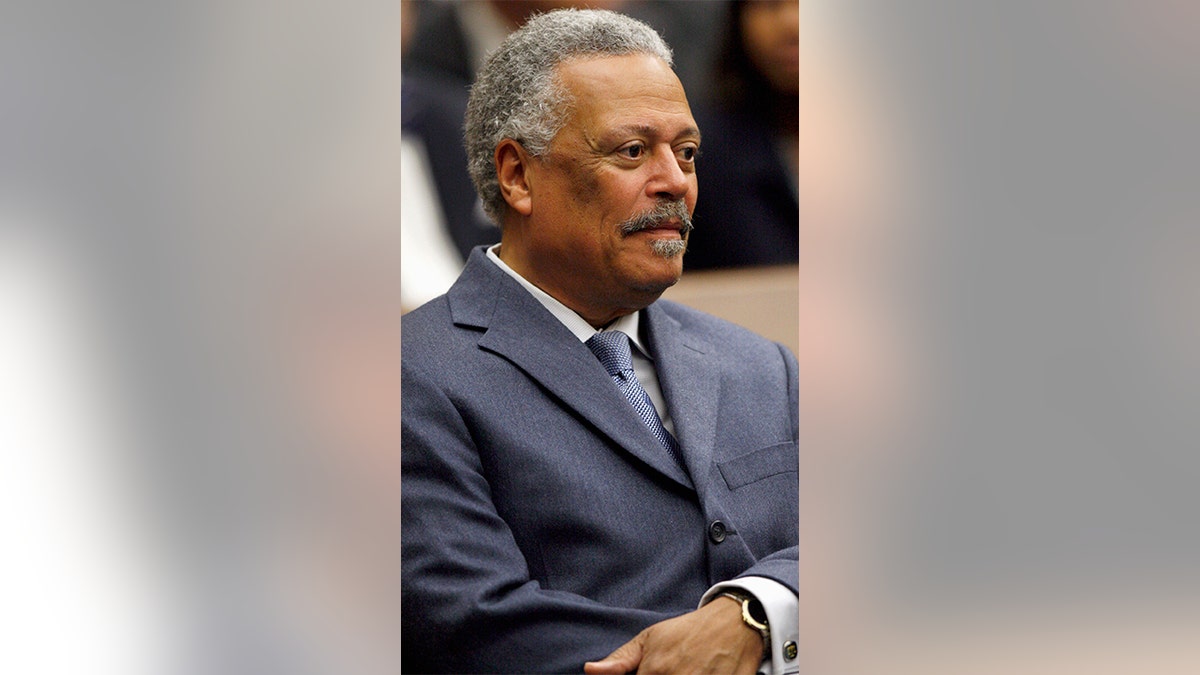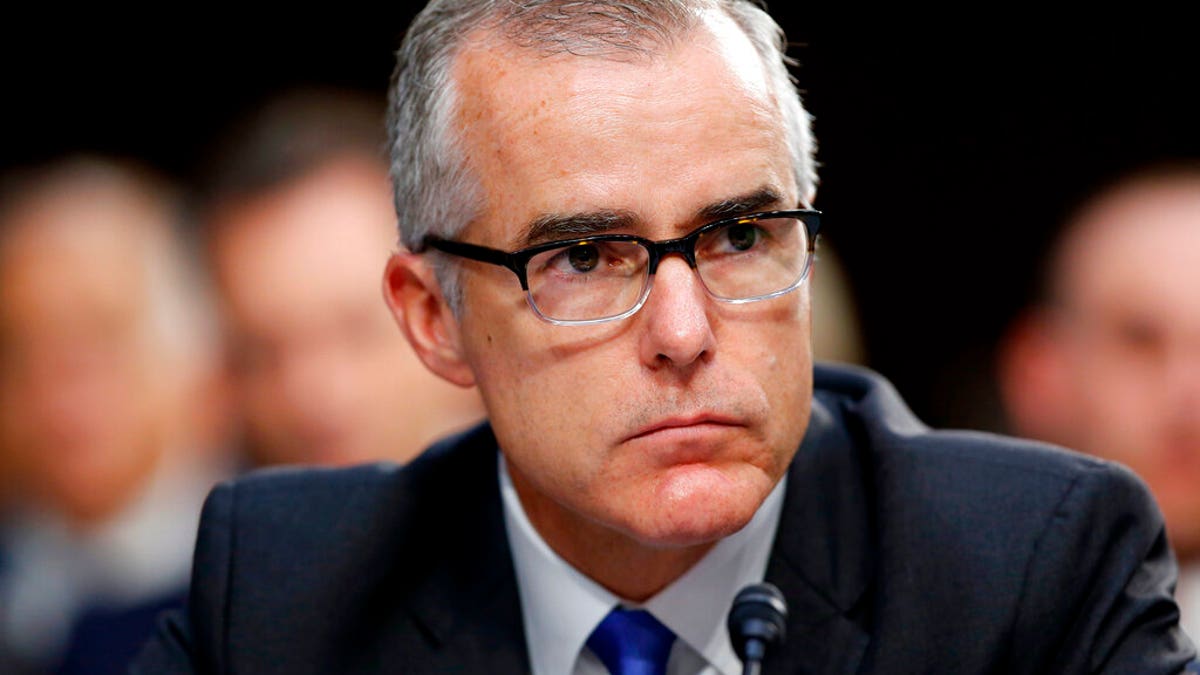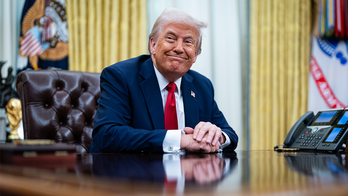Federal judge delays immediate resolution of DOJ decision to end prosecution of Michael Flynn
DOJ spokesperson Kerri Kupec joins Martha MacCallum on 'The Story' with reaction to Judge Emmet Sullivan's decision to postpone an immediate resolution of Michael Flynn's criminal case.
D.C. District Court Judge Emmet Sullivan issued an order Tuesday indicating he'll soon accept "amicus curiae," or "friend of the court" submissions, in the case of former national security adviser Michael Flynn -- drawing immediate scrutiny and a planned ethics complaint against Sullivan, who had previously refused to hear amicus briefs in the case.
Sullivan's order indicated that an upcoming scheduling order would clarify the parameters of who specifically could submit the amicus briefs, which are submissions by non-parties that claim an interest in the case. Sullivan specifically said he anticipated that "individuals and organizations" will file briefs "for the benefit of the court," as he prepares to rule on the government's motion to dismiss the case.
"Judge Sullivan, who denied leave to file amicus briefs when he knew third parties would have spoken favorably of Flynn, now solicits briefs critical of Flynn," independent journalist Michael Cernovich wrote on Twitter Tuesday evening. "This is a violation of the judicial oath and applicable ethical rules. We will be filing a complaint against Sullivan. ... [He] is acting as a politician, not a judge."
Sullivan had previously held in the Flynn case that "[o]ptions exist for a private citizen to express his views about matters of public interest, but the Court's docket is not an available option."
Will Chamberlain, a lawyer and the editor-in-chief of Human Events, noted that case law in the circuit generally prohibits trial court judges from second-guessing the government's decision not to prosecute a defendant.
Fox News is told that movement on Cernovich's ethics complaint was underway Tuesday night, and that Cernovich also was considering filing his own amicus brief. (Cernovich has also sought to intervene in the case of Trump associate Roger Stone to obtain jury questionnaires, after issues of apparent juror bias surfaced -- an ongoing effort supported by the Reporters Committee for Freedom of the Press.)
Flynn's legal team indicated in a filing Tuesday that a sealed amicus brief has already been submitted by a left-wing group known as the "Watergate Prosecutors," urging Sullivan not to toss out Flynn's guilty plea despite the Justice Department's request. That group was featured in an October 2019 Washington Post opinion piece, and listed Jill Wine-Banks -- who previously advanced unsubstantiated collusion theories involving the Trump campaign and Russia -- as one of its members.
Wine-Banks was also explictly named as a member of the group seeking to file an amicus brief in the Flynn case.
"Mueller can prove conspiracy with Russia beyond any doubt," Wine-Banks previously wrote. She also claimed in 2017 that Flynn would receive "immunity for kidnapping as well as his federal crimes."
Late Tuesday, President Trump retweeted a post by the Twitter user Techno_Fog calling Wine-Banks a "Trump/Russia collusion nutter." The post concluded, sarcastically: "Good job Judge Sullivan!"
Wine-Banks did not immediately respond to Fox News' request for comment.
The Federalist's Sean Davis responded: "This is who Emmet G. Sullivan, the judge in Flynn’s case, is allowing to hijack a case which both the defense and the government prosecution wish to dismiss because the case was tainted by corruption from the beginning. Pathetic."
Davis added that Sullivan was letting "left-wing lawyers write his final order against Flynn for him."
Flynn's attorney, Sidney Powell, echoed those arguments. "The proposed amicus brief has no place in this Court," Powell wrote. "No further delay should be tolerated or any further expense caused to him and his defense."

Judge Emmet Sullivan has a reputation for punishing Justice Department overreach, including during the case against then-Alaska Republican Sen. Ted Stevens. (AP, File)
In his brief order Tuesday, Sullivan quoted his fellow judge on the D.C. District Court, Amy Berman Jackson, who previously admonished the parties in the Stone case that allowing amicus submissions does not mean that the criminal case will become a "free for all."
Flynn's case, however, has sometimes seemed like just that. In a fireworks-filled sentencing hearing in December 2018, for example, Sullivan himself appeared open to the idea that Flynn could be charged with a death penalty-eligible offense.
"I'm not hiding my disgust, my disdain for this criminal offense," Sullivan said during that hearing. He added that Flynn's allegedly unregistered work with Turkey "arguably" had undermined "everything this flag over here stands for.” (Flynn was never charged with violating the Foreign Agents Registration Act, which had gone largely unenforced until recently.)
In a bizarre moment, Sullivan then asked the government's attorneys whether they had considered charging Flynn with treason. The prosecutors said they had not, and Sullivan later walked back his comments after a brief recess.
Then, last December, Sullivan accused Flynn's legal team of plagiarism in a filing, saying they had "lifted verbatim portions from a source without attribution." Powell shot back that the claim "made no sense," and that she relied on one of her own cases as well as a brief primarily written by a friend whom she cited.
On the recommendation of U.S. Attorney Jeff Jensen, who served as an FBI agent for more than a decade, the Justice Department last Thursday moved to drop its case against Flynn. The stunning development came after internal memos were released raising serious questions about the nature of the investigation that led to Flynn’s late 2017 guilty plea of lying to the FBI as his legal fees mounted.
OBAMA KNEW DETAILS OF FLYNN CASE, SHOCKING TOP DOJ OFFICIAL, DOCS SHOW
One of the documents was a top official's handwritten memo debating whether the FBI's "goal" was "to get him to lie, so we can prosecute him or get him fired." Other materials showed efforts by anti-Trump FBI agent Peter Strzok to pursue Flynn on increasingly flimsy legal grounds.
It would not be unprecedented for the government to successfully move to dismiss a case after securing a conviction. In fact, Sullivan himself tossed the conviction of former Alaska Sen. Ted Stevens in 2009, when it emerged the government had not produced a slew of exculpatory "Brady" material.
Powell has raised similar issues in the Flynn case. Fox News has chronicled numerous representations by the lead prosecutor in the Flynn case, Brandon Van Grack, concerning the government's supposed compliance with "Brady' requirements -- representations that now appear to have been inaccurate, as a mountain of striking exculpatory evidence has emerged.

FILE - In this June 7, 2017, file photo, then-FBI acting director Andrew McCabe listens during a Senate Intelligence Committee hearing about the Foreign Intelligence Surveillance Act, on Capitol Hill in Washington. (AP Photo/Alex Brandon, File)
Van Grack withdrew from the case entirely two days after Fox News published the article on his apparent misrepresentations to the court.
Meanwhile, it has emerged that President Obama was aware of the details of Flynn's intercepted December 2016 phone calls with Russia's then-Ambassador Sergey Kislyak, surprising then-Deputy Attorney General Sally Yates in a White House meeting.
Obama's unexpectedly intimate knowledge of the details of Flynn's calls, which the FBI acknowledged at the time was not criminal or even improper, raised eyebrows because of his own history with Flynn — and because top FBI officials secretly discussed whether their goal was to "get [Flynn] fired" when they interviewed him in the White House on January 24, 2017, according to newly released documents.
Obama personally had warned the Trump administration against hiring Flynn, and made clear he was "not a fan," according to multiple officials. Obama had fired Flynn as head of the Defense Intelligence Agency in 2014; Obama cited insubordination, while Flynn asserted he was pushed out for his aggressive stance on combating lslamic extremism.
WHO IS JOE PIENTKA, MYSTERY FBI AGENT AT CENTER OF FLYNN AND CARTER PAGE CASES? ... FBI SCRUBS HIM FROM WEBSITE
On January 5, 2017, Yates attended an Oval Office meeting with then-FBI Director James Comey, then-Vice President Joe Biden, then-CIA Director John Brennan and then-Director of National Intelligence James Clapper, according to the newly declassified documents, including an FD-302 FBI witness report. They were discussing Russian election interference, along with national security adviser Susan Rice and other members of the national security council.
"It was at this meeting that Obama gave guidance to key officials who would be tasked with protecting his administration’s utilization of secretly funded Clinton campaign research, which alleged Trump was involved in a treasonous plot to collude with Russia, from being discovered or stopped by the incoming administration," Hemingway wrote.
After the briefing, Obama asked Yates and Comey to "stay behind," and said he had "learned of the information about Flynn" and his conversation with Russia's ambassador about sanctions. Obama "specified that he did not want any additional information on the matter, but was seeking information on whether the White House should be treating Flynn any differently, given the information."
A previous memo from Rice stated that Biden also stayed behind after the main briefing had ended.
At that point, the documents showed, "Yates had no idea what the president was talking about, but figured it out based on the conversation. Yates recalled Comey mentioning the Logan Act, but can't recall if he specified there was an 'investigation.' Comey did not talk about prosecution in the meeting."
The exhibit continued: "It was not clear to Yates from where the president first received the information. Yates did not recall Comey's response to the president's question about how to treat Flynn. She was so surprised by the information she was hearing that she was having a hard time processing it and listening to the conversation at the same time."
Yates, who was fired by the Trump administration after taking the extraordinary step of refusing to defend its travel ban executive order in court, later said she was concerned Flynn would be vulnerable to blackmail because of his interactions with Russia.
The Logan Act, an obscure statute, has never been used successfully in a criminal prosecution; enacted in 1799 in an era before telephones, it was intended to prevent individuals from falsely claiming to represent the United States government abroad. In its motion to dismiss Flynn's case on Thursday, the DOJ noted that the law was an unserious dead letter.
The Washington Post newsroom also struggled with the relevance of any potential issue with Flynn's overseas calls, a bombshell transcript uncovered by the Twitter user Techno_Fog revealed this weekend -- before an op-ed columnist went ahead and published the "red meat."
During the interview with FBI agents Strzok and Joe Pientka in the White House, Flynn said "not really" when asked if he had sought to convince Kislyak not to escalate a brewing fight with the U.S. over sanctions imposed by the Obama administration, according to a contested FD-302 witness report prepared by the FBI. Flynn also demurred when asked if he had asked Russia to veto a U.N. Security Council resolution that condemned Israel’s settlements in the West Bank, according to the FBI. The Obama administration abstained in that vote.
At various points, Flynn also suggested to Strzok and Pientka that such conversations might have happened or that he could not recall them if they did, according to the 302. The 302 indicated that Flynn apparently was aware his communications had been monitored, and at several points he thanked the FBI agents for reminding him of some of his conversations with Russian officials.
CLICK HERE TO GET THE FOX NEWS APP
Pientka was scrubbed from the FBI website after Fox News asked the bureau about him last December, and Republican lawmakers (including Sen. Lindsey Graham, R-S.C., and GOP Reps. Jim Jordan and Mike Johnson) are seeking to question him. The FBI told Fox News last year that reporting Pientka's name was irresponsible and endangered his life for no journalistic purpose; sources tell Fox News that Pientka still holds a senior post in the bureau's San Francisco field office.
But, Fox News has previously determined that Pientka was also intimately involved in the probe of former Trump aide Carter Page, which the DOJ has since acknowledged was riddled with fundamental errors and premised on a discredited dossier that the bureau was told could be part of a Russian disinformation campaign.
Fox News' Bill Mears and Alex Pappas contributed to this report.












































